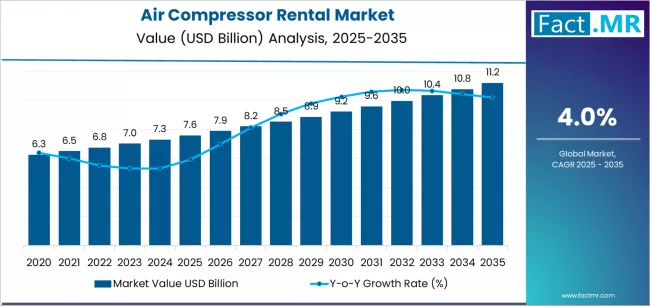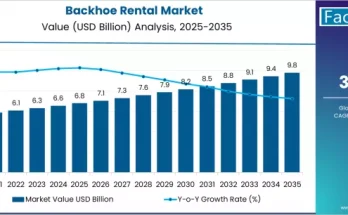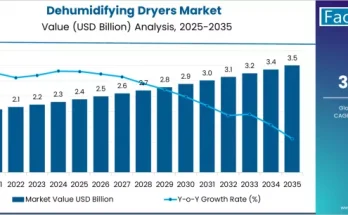As industries increasingly prioritize operational efficiency and cost optimization, the air compressor rental market is emerging as a vital solution for businesses requiring reliable compressed air systems. Air compressors, essential for powering pneumatic tools, industrial machinery, and construction equipment, are widely used across manufacturing, construction, oil and gas, and other industrial sectors.
The growing preference for rental solutions over outright equipment purchase reflects the need for flexibility, reduced capital expenditure, and access to the latest technology. Rental services allow companies to scale operations according to project requirements while minimizing maintenance responsibilities and storage constraints.
Market Overview
The air compressor rental market is driven by the demand for flexible, short-term equipment solutions across diverse industrial and commercial applications. Renting air compressors enables businesses to access well-maintained and technologically advanced equipment without committing to long-term ownership.
Modern air compressors are designed for efficiency, durability, and ease of operation. Rental fleets often include portable, stationary, diesel-powered, and electric models that can be tailored to specific job requirements. Features such as variable speed drives, enhanced pressure controls, and low-noise operation improve energy efficiency and operational performance, making rentals a preferred choice for contractors, manufacturers, and facility operators.
The integration of digital fleet management systems is also transforming the rental market. Telemetry-enabled compressors allow rental providers to monitor performance, schedule maintenance, and optimize utilization, enhancing reliability and minimizing downtime for end users.
Regional Insights
North America remains a leading market for air compressor rentals, supported by its well-established construction and industrial sectors. The region’s mature rental infrastructure, stringent safety standards, and high industrial activity drive strong demand for rental compressors.
Europe also holds a significant market share, fueled by infrastructure development, energy projects, and the adoption of advanced industrial technologies. Environmental regulations encouraging energy-efficient and low-emission compressors are further shaping the market landscape.
Asia-Pacific is emerging as a high-growth region, driven by rapid urbanization, expanding manufacturing sectors, and increasing demand for rental solutions among small and medium-scale contractors. Countries in the region are leveraging rental models to access high-performance compressors while minimizing upfront investment.
Latin America and the Middle East & Africa are gradually expanding their adoption of rental compressors due to growing industrialization, construction activities, and increased demand for short-term equipment solutions. Local rental providers are improving accessibility and service availability, supporting market growth.
Key Trends & Forecast
The air compressor rental market is evolving under the influence of technological advancement, operational demands, and sustainability initiatives. Key trends shaping the market include:
- Energy Efficiency and Sustainability: Electric and hybrid compressors are gaining popularity for reducing energy consumption, lowering emissions, and meeting environmental regulations.
- Integration of Digital Monitoring: Telematics and real-time performance monitoring improve fleet management, ensuring equipment reliability and operational efficiency.
- On-Demand and Project-Based Rentals: Flexible rental models allow companies to scale resources according to project duration, reducing operational costs and improving resource allocation.
- Focus on Safety and Compliance: Modern compressors are equipped with advanced safety features such as automatic shut-offs, pressure regulation, and noise reduction, ensuring regulatory compliance.
- Expansion into Emerging Markets: Rising construction and industrial activity in developing regions is driving demand for rental air compressors to support project-specific requirements.
These trends highlight a market that is increasingly service-oriented, technologically advanced, and aligned with sustainability and operational efficiency objectives.
Applications & End-Use Outlook
Air compressor rentals serve a variety of applications across multiple industries, ensuring operational flexibility and productivity:
- Construction and Infrastructure: Rental compressors power pneumatic tools, jackhammers, and drilling equipment, supporting roadworks, building projects, and civil engineering activities.
- Manufacturing and Industrial Plants: Air compressors are used for assembly lines, material handling, packaging, and machinery operation, enabling continuous production efficiency.
- Oil & Gas and Mining: Compressed air systems are essential for drilling, extraction, and maintenance operations in challenging environments.
- Utilities and Maintenance Services: Municipal agencies and facility managers use rental compressors for repair, maintenance, and emergency operations.
- Events and Temporary Installations: Portable compressors provide reliable power for temporary setups, including outdoor events, exhibitions, and mobile construction sites.
The broad applicability of rental compressors ensures consistent utilization and supports operational efficiency across a wide spectrum of end users.
Challenges and Opportunities
Despite growth, the air compressor rental market faces challenges such as equipment maintenance demands, operator training requirements, and fleet management complexities. Additionally, fluctuations in energy costs and the availability of advanced compressor models can affect operational planning for rental providers.
However, these challenges present opportunities for innovation and differentiation. Rental companies are increasingly adopting digital fleet management, predictive maintenance, and remote monitoring technologies to enhance operational efficiency and service reliability. The growing emphasis on eco-friendly and energy-efficient compressors offers potential for market expansion and alignment with environmental standards.
Flexible rental offerings, including short-term and long-term project-based solutions, further enable companies to meet diverse customer needs and capitalize on seasonal or cyclical demand trends.
Conclusion
The air compressor rental market is becoming an essential component of modern industrial, construction, and maintenance operations. Rental solutions provide businesses with the flexibility, efficiency, and cost savings needed to complete projects effectively without the burden of ownership.
As digital integration, technological advancements, and sustainability initiatives continue to shape the market, rental air compressors are poised for continued growth. Companies that embrace flexible rental models, advanced equipment, and eco-friendly solutions will be well-positioned to meet evolving industry demands and achieve long-term operational excellence.
Browse Full Report – https://www.factmr.com/report/air-compressor-rental-market



